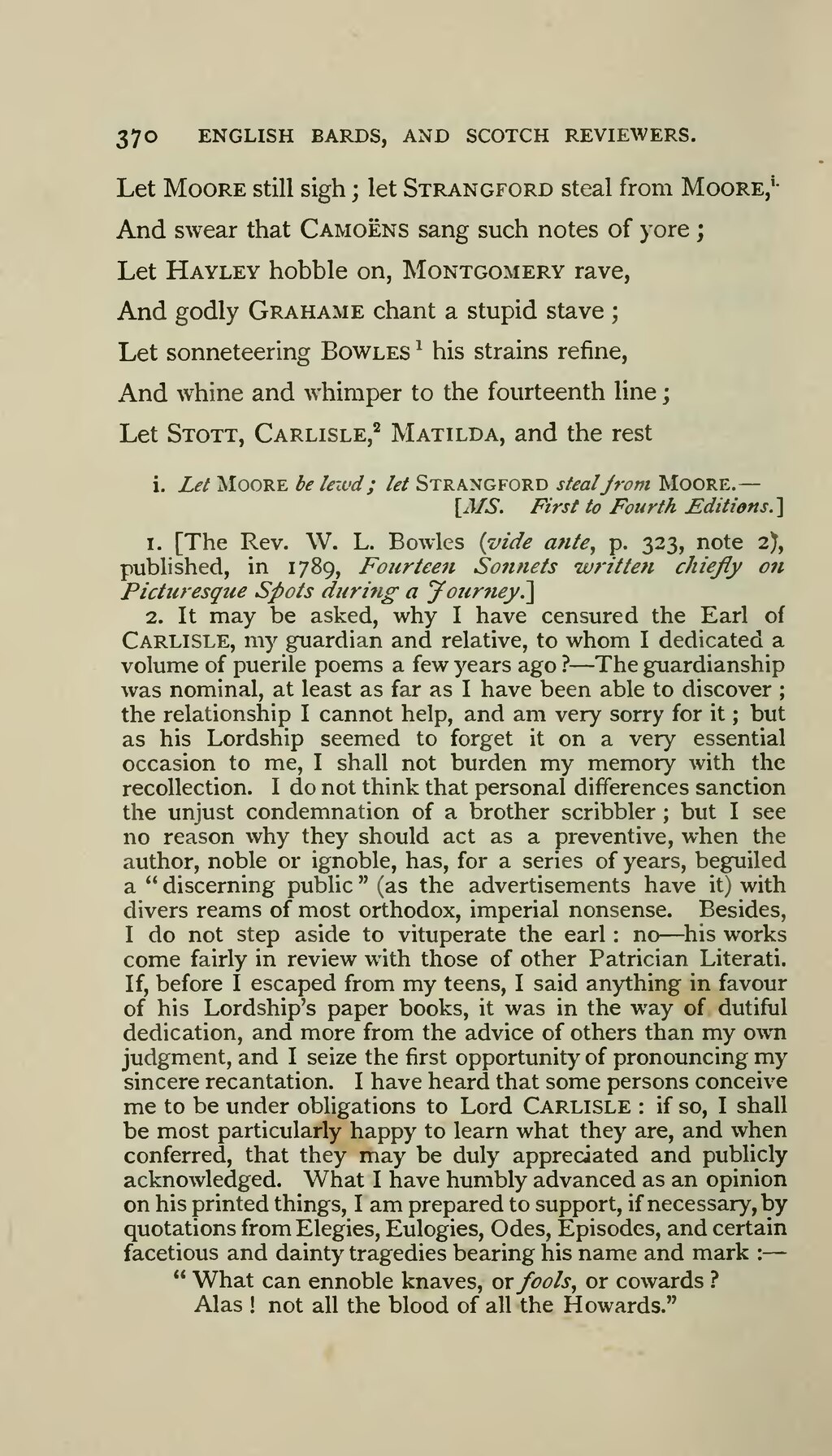370
ENGLISH BARDS, AND SCOTCH REVIEWERS.
Let Moore still sigh; let Strangford steal from Moore,[1]
And swear that Camoëns sang such notes of yore;
Let Hayley hobble on, Montgomery rave,
And godly Grahame chant a stupid stave;
Let sonneteering Bowles[2] his strains refine,
And whine and whimper to the fourteenth line;
- ↑ Let Moore be lewd; let Strangford steal from Moore.—[MS. First to Fourth Editions.]
- ↑ [The Rev. W. L. Bowles (vide ante, p. 323, note 2), published, in 1789, Fourteen Sonnets written chiefly on Picturesque Spots during a Journey.]
- ↑ It may be asked, why I have censured the Earl of Carlisle, my guardian and relative, to whom I dedicated a volume of puerile poems a few years ago?—The guardianship was nominal, at least as far as I have been able to discover; the relationship I cannot help, and am very sorry for it; but as his Lordship seemed to forget it on a very essential occasion to me, I shall not burden my memory with the recollection. I do not think that personal differences sanction the unjust condemnation of a brother scribbler; but I see no reason why they should act as a preventive, when the author, noble or ignoble, has, for a series of years, beguiled a "discerning public" (as the advertisements have it) with divers reams of most orthodox, imperial nonsense. Besides, I do not step aside to vituperate the earl: no—his works come fairly in review with those of other Patrician Literati. If, before I escaped from my teens, I said anything in favour of his Lordship's paper books, it was in the way of dutiful dedication, and more from the advice of others than my own judgment, and I seize the first opportunity of pronouncing my sincere recantation. I have heard that some persons conceive me to be under obligations to Lord Carlisle: if so, I shall be most particularly happy to learn what they are, and when conferred, that they may be duly appreciated and publicly acknowledged. What I have humbly advanced as an opinion on his printed things, I am prepared to support, if necessary, by quotations from Elegies, Eulogies, Odes, Episodes, and certain facetious and dainty tragedies bearing his name and mark:—
"What can ennoble knaves, or fools, or cowards?
Alas! not all the blood of all the Howards."
